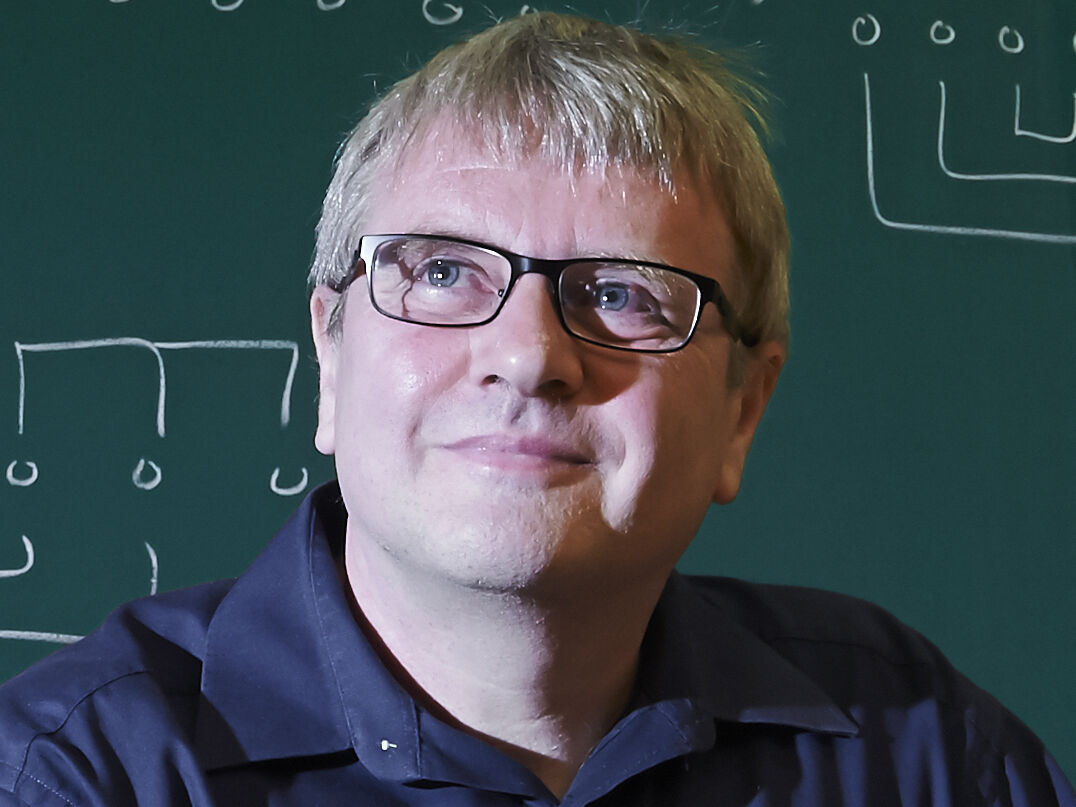Non-commutative probability connects theoretical mathematics, like operator algebras, to very applied questions from wireless networks to machine learning. This bridge rests quite substantially on random matrices. In this lecture Roland Speicher will try to give an idea of what all this means and why it is so exciting. This talk is intended for a general academic audience with some interest in what is going on in mathematics, as well as for mathematicians who always wanted to know what free probability is about; or actually for anybody who wonders why we should liberate probability from its commutative chains, whether there are non-commutative dice, or why we should care about random matrices.
Roland Speicher is Professor of Mathematics at Saarland University in Saarbrücken. He got his PhD in 1989 in Heidelberg. After a Heisenberg fellowship 1995–2000 he became professor at Queen’s University in Kingston, Canada, where he stayed until 2010. His research centers around free probability and its combinatorial aspects, with applications to random matrices, statistical mechanics, and operator algebras. Among other awards, he received the Jeffrey-Williams Prize of the CMS in 2012, was an invited speaker at the ICM 2014 in Seoul, and held an ERC Advanced Grant 2014-2019.
Moderation: Dr. Malte Gerhold
-------
Organizational information on the digital lecture
The Alfried Krupp Wissenschaftskolleg is offering this event live as a zoom meeting, in which viewers can also take part in the subsequent discussion with video contributions.
- We would be delighted if you gave your real name when dialing into Zoom. Of course, you can also take part in the event under a pseudonym.
- A list of all participants is available to all those involved during the entire event.
- During the lecture, the microphones of the audience are all automatically muted so as not to generate any disturbing background noise. You can turn on the audience's camera during the lecture.
- In the discussion that follows, requests to speak or questions can be displayed using the "Raise hand" function. You can find these - depending on the device - under the button "Participant", "More" or "Reactions" in Zoom. You can also lower your hand again if you want to withdraw the question.
- The moderator keeps a speech list and gives the floor in the order of the messages. If the moderator asks you to bring your question or request to speak, the user interface will ask you to turn on your microphone. If you have not already done so, you are welcome to turn on your camera. This is particularly desirable when presenting longer requests to speak so that the presenter can also see who is asking the question or who is making the comment.
- Of course, you also have the option of asking your questions in writing in the chat.
-------
-------

